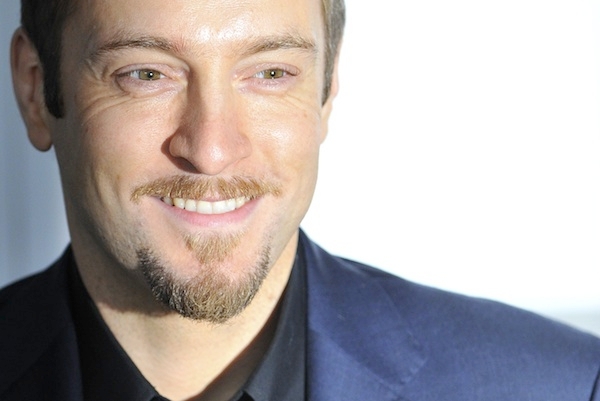Derren Brown is a great big cheating liar. Or so my old mucker Rod Liddle reckoned last week in his Spectator blog. Derren Brown’s Apocalypse was ‘clearly, demonstrably, faked’, declared Rod. Well, I guess that settles it then. Or does it? First some background for those of you who missed it. (Though my advice for those of you who did is: stop reading now and watch both episodes immediately on Channel 4’s 4oD catch-up site.) Derren Brown’s Apocalypse (Channel 4, last Friday) was — or, pace Rod, purported to be — an extraordinarily bold TV experiment. Part horror movie, part therapy session, its aim was to turn around the life of a selfish, boorish waster called Steven using the novel method of persuading him that he was one of the few humans left alive in a world taken over by zombies.
If this sounds implausible I’d quite agree. But not impossible, as anyone familiar with Brown’s meticulous working methods would know. First, Brown selects his targets carefully, from a large group of volunteers who have proved susceptible to hypnosis. Second, he goes to enormous lengths to lay the groundwork for the psychological trick he is about to play on them.
In the case of Apocalypse, the trick was to persuade Steven that our planet has been struck by a meteor shower carrying some kind of space virus that has turned all those it touches into zombies. Travelling by coach to what he thought was a rock concert, Steven instead found himself entering a nightmare: explosions all around as those meteors crashed to earth; screaming, terrified passengers. What he didn’t know was that they were all actors and that the stranger who sidled up to him in the mayhem and whispered a cue word in his ear was Derren Brown, putting him into an hypnotic trance state.
Waking up, alone, in the ward of an apparently empty hospital, Steven spent the rest of the two-part series experiencing every post-apocalypse cliché going: rubbish-strewn corridors; eerie noises off; emergency broadcasts on TV; the dawning realisation that he’s one of the few people left alive; the felicitous discovery of a fellow survivor, in this case a 14-year-old girl called Leona.
But Leona — along with all the other characters Steven would meet on his journey through zombie hell — including, of course, the massed ranks of the walking dead — was played by an actor with a vital, schematic role in Steven’s psychodrama. Leona’s job — being young and vulnerable — was to kindle his sense of altruism and responsibility. A bit later, Steven would meet Iain, whose job was to teach him leadership and decisiveness. And finally he’d meet the feckless, selfish loser Danny — a kind of living aversion therapy, designed to make Steven disgusted with his old ways and to seek a new beginning through sundry acts of contrition, heroic self-sacrifice and redemption.
This might sound rather heavy and worthy but it wasn’t in the slightest. If you’ve ever been amused by watching a stage hypnosis victim thinking he’s a chicken, imagine how much more fun it is watching a young man utterly convinced that he is the hero of his very own, true-life zombie movie. To this you must add the sense of beguiled wonderment as you continually asked yourself: ‘How on earth did they manage to conceal all those cameras from him? And however did all those actors stop themselves from cracking up and giving the game away?’ And what you had was a recipe for some of the most simultaneously shocking, funny, involving, frightening and genuinely moving TV entertainment in ages.
I suppose it’s inevitable that something so bold, ground-breaking and hard-to-pull-off should have given rise to accusations of fakery. There’s just no way, people are saying — Rod among them — that Steven wasn’t complicit in the exercise. And they’ve found apparently corroborating evidence that his CV lists attempts at being an actor, and that they’ve seen him in a TV advert (a case of mistaken identity, it turns out, but never mind), that the editing isn’t kosher, and so on.
To which I’d reply, sure: if you put your mind to it you can ‘prove’ that almost anything was faked from the moon landings to 9/11. No, really, though. I’ve read some of that stuff and it’s desperately persuasive — the ‘wrong’ shadows in the photographs, the wind on the US flag….Except the thing is, the moon landings weren’t faked. Nor was 9/11. Nor, I believe, was Derren Brown’s Apocalypse.
What, after all, would have been the point? Why would Channel 4, Derren Brown, a film crew and dozens of actors have squandered 30 days of solid filming and a budget running into several hundred thousand pounds in order to fake an experiment that could only possibly have had any interest or value if it wasn’t faked. I think Rod owes Derren an apology.







Comments